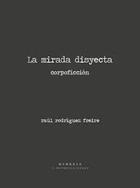The history of thought is inextricably linked to a disembodied vision; knowledge is fundamentally knowing how to see with the eye of the soul. From Plato onward, a gaze that obliterates the materiality of both the body itself and that with which one thinks (the page) has been favored, giving rise to an autotelic and cerebral notion of thinking. Matter, marked by the feminine, would be nothing more than "a bastard thought," in Plato's words, upon which the penetration of the idea occurs, a properly masculine and objective sign of thought. The Enlightenment, also called the Enlightenment, would come to strengthen this immaterial generic hierarchy, further exalting vision and its metaphors (light, clarity, white, etc.). The disjected gaze. Corpofiction ventures to intervene, from the very body of its "author," in the metaphysics of sedimented intellectual discourse, highlighting the powe...read more
Shopping cart
Loading cart
Important notices
|
|
Recordando a André Rouillé: Su legado en la fotografía André Rouillé 1948 - 2025 |
|
|
Libros de filosofía y co. Disponibles en Librería Herder |
|
|
Revista Filosofía & Co. nº 9 Nueva revista de filosofia divulgativa y actualidad |
|
|
"Espacios de la filosofía" - Mauricio Beuchot - Novedad Herder México |
|
|
Revista Filosofía & Co. nº 8 Nueva revista de filosofia divulgativa y actualidad |
Pay safely with:


In the webshop
New
|
|
Revista Filosofía & Co. No. 15 70591 $200.00 -0.00% $200.00 |
|
|
El bestiario de Michel Foucault 70404 $749.00 -15.00% $636.65 |
|
|
La fuerza de los fuertes 70405 $519.00 -15.00% $441.15 |
|
|
Su Majestad 70410 $319.00 -15.00% $271.15 |
|
|
El arte de la fantasía 70407 $759.00 -15.00% $645.15 |
In the press
Promotions
|
|
Panorama A1.1, Deutsch als Fremdsprache Übungsbuch 36726 $235.00 -35.00% $152.75 |
|
|
Diccionario de términos filológicos 70241 $900.00 -25.00% $675.00 |
|
|
Prosa y poesía. Homenaje a Gonzalo Sobeja 70242 $1,755.00 -25.00% $1,316.25 |
|
|
Lingüística española aplicada a la terapia del lenguaje 70239 $300.00 -25.00% $225.00 |
|
|
Introducción a la filosofía 70243 $620.00 -25.00% $465.00 |






